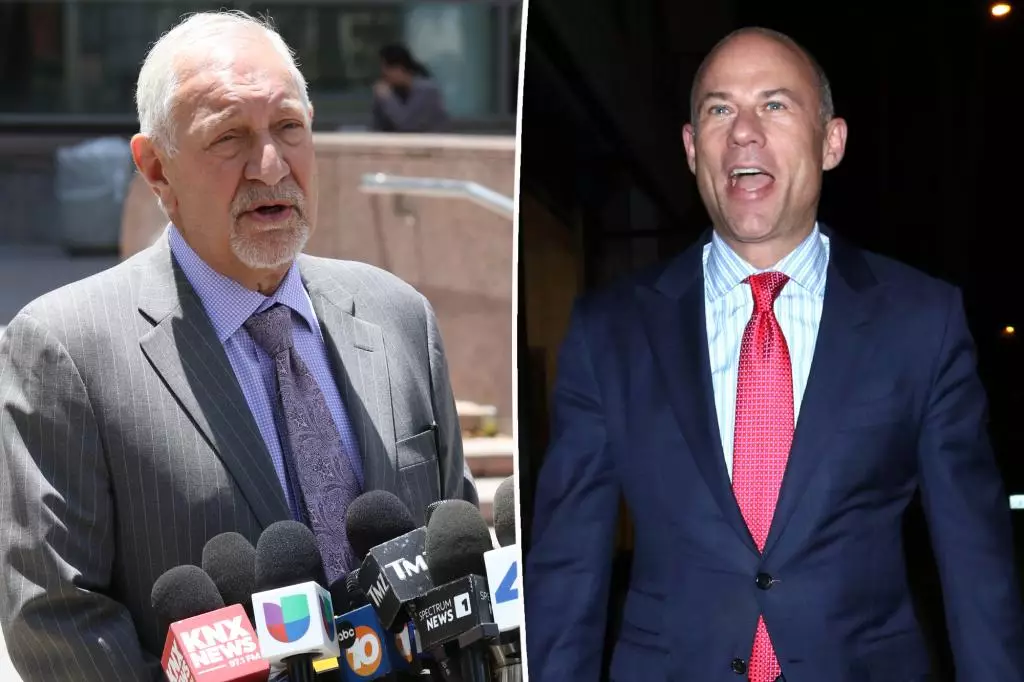The recent legal saga surrounding renowned attorney Mark Geragos exposes stark truths about the fierce undercurrents in the legal realm, where influence and loyalty often blur ethical lines. Once celebrated for defending high-profile celebrities like Michael Jackson and Winona Ryder, Geragos’s recent downfall reveals that even the most revered figures can stumble into gray areas of morality. His $100,000 civil judgment underscores a deeply unsettling reality: power and proximity do not guarantee innocence. Instead, they can entangle even the most skilled advocates in schemes of manipulation and complicity.
What is most troubling about this case is Geragos’s implicated role in aiding Michael Avenatti’s notorious misconduct. Avenatti, a lawyer once hailed as a legal firebrand, was convicted and sentenced for attempting to blackmail Nike—an audacious act of corporate intimidation rooted in personal greed and recklessness. Geragos’s involvement as an unindicted co-conspirator reveals a layered story of moral compromise. His alleged knowledge of wrongdoing and subsequent support of Avenatti’s schemes shed light on a disturbing pattern where legal professionals sometimes prioritize influence over integrity. Such behavior threatens the foundational trust of the legal system, illustrating how ethical boundaries can be eroded under the weight of ambition.
The jury’s decision, affirming that Geragos provided “knowingly substantial assistance,” raises fundamental questions about accountability in legal practice. Although they ultimately found that his actions were not the direct cause of Franklin’s harm, the acknowledgment of his complicity signals a broader issue: the seduction of doing what benefits personal or professional interests at the expense of justice. This case becomes a cautionary tale—highlighting that proximity to wrongdoing, even without direct causation, can stain a reputation and undermine confidence in justice.
Geragos’s own representatives claim victory, describing the verdict as “close to vindication,” but this perspective subtly dismisses the severity of the findings. The stark truth is that a jury has decisively pointed to his active role in misconduct. In the complex web of legal alliances and reputation management, such denials serve only to obscure the deeper ethical cracks. The challenge for the legal community is to confront these truths honestly—recognizing that legal brilliance is no defense against moral lapses.
Meanwhile, Avenatti’s downfall, marked by decades of prison time, mirrors the tragic cost of abusing influence for personal gain. His militant pursuit of notoriety through schemes like extortion and embezzlement shows a relentless pursuit of wealth and power that ultimately collapsed his career and life. His case leaves lingering questions: How could someone so charismatic and seemingly influential drift into such destructive behaviors? And what does this say about the culture within certain legal circuits where risks are taken to elevate status—sometimes with devastating consequences?
This entire sequence of legal revelations casts a harsh spotlight on the ethical pitfalls lurking beneath the veneer of prestige and success. It calls into question the integrity maintained by those who operate within the boundaries of law but cross into the shadows of moral ambiguity. As these stories unfold, the lesson is clear: true influence does not lie in bending rules or aiding misconduct but in upholding the unwavering standards that safeguard justice and trust in the legal profession.
